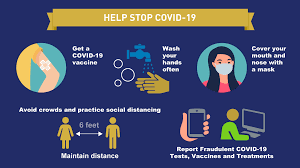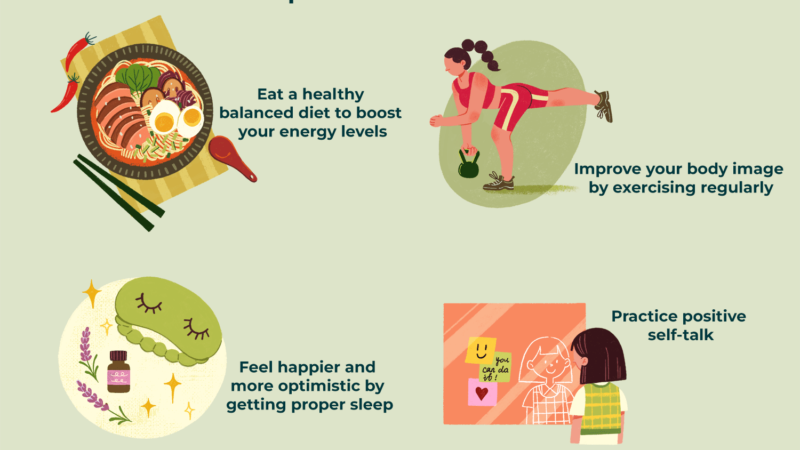Help stop the spread of coronavirus and protect your family

The COVID-19 pandemic requires that we remain vigilant in our daily lives as we return to our daily activities. Each of us can take some simple steps to protect ourselves, our families and communities.
The steps are:
Get vaccinated against COVID-19.
Wash your hands often with soap and water.
Cover your mouth and nose with a mask when you are around other people.
Avoid crowds and practice social distancing (stay at least 6 feet away from others).
Here are some ways you and your family can help stop the spread of coronavirus disease.
Help stop COVID-19 by getting vaccinated
Anyone 5 years of age or older can get vaccinated against COVID-19. Vaccination is one of the best ways to protect everyone who qualifies against COVID-19.
The US Food and Drug Administration (FDA) has approved two COVID-19 vaccines and has issued emergency use authorizations (EUAs) for others. For the latest information on vaccines, visit this FDA page .
The FDA has also authorized two additional COVID-19 vaccines for emergency use in people 18 years of age and older. Studies show that COVID-19 vaccines are effective in preventing you from getting COVID-19. Getting vaccinated against COVID-19 will also help you avoid serious illness, even if you do get COVID-19.
The COVID-19 vaccine is an important tool to help us get back on track. Learn more about the benefits of getting vaccinated and how to get a vaccine .
Wash your hands
The best way to prevent this illness is to avoid being exposed (or exposing others) to this virus. First, practice simple hygiene. Wash your hands regularly with soap and water for 20 seconds, especially after using the bathroom, before eating, and after coughing, sneezing, or blowing your nose. Learn how to wash your hands to prevent the spread of coronavirus and other diseases.
If soap and water are not available, the Centers for Disease Control and Prevention recommends that consumers use alcohol-based hand sanitizers that contain at least 60% ethanol (also known as ethyl alcohol).
The FDA continues to warn consumers about hand sanitizers that contain methanol, also called wood alcohol. Methanol is highly toxic and should never be used in hand sanitizers. If absorbed through the skin or ingested, methanol can cause serious health problems, including seizures and blindness, or even death.
Before you buy hand sanitizer or use one you already have at home, check this list to see if your hand sanitizer may contain methanol. Most hand sanitizers that contain methanol do not list it as an ingredient on the label (because it is not an acceptable ingredient in the product), so it is important to check the FDA list to see if the company or product is approved. included. Please continue to check this list often as it is updated on a routine basis.
The FDA has also expanded the list to include hand sanitizers that contain other dangerous ingredients and products that have less than the required amount of the active ingredient.
The FDA advises consumers not to use hand sanitizers produced by manufacturers identified on the list. Learn how to find your hand sanitizer on the list and how to use hand sanitizer safely .
Wear a mask and avoid crowds
Avoid crowds and poorly ventilated spaces. Avoid close contact (stay at least 6 feet, or about two arms’ length) with people who don’t live with you, even if they don’t appear sick, both indoors and outdoors. Some people without symptoms can spread the coronavirus.
If you are not fully vaccinated, the CDC recommends wearing a mask in closed public places. Wearing masks in public can help slow the spread of the virus. They can help prevent people who may have the virus and don’t know it from spreading it to others by helping to prevent respiratory droplets from becoming airborne and reaching other people when you cough, sneeze or talk.
Learn how to protect yourself and others from the coronavirus. And if you are fully vaccinated, take these precautions to protect yourself and others.
Wearing a mask over the nose and mouth is required on planes, buses, trains, and other forms of public transportation entering , leaving, or en route to the United States, as well as within American transportation hubs, such as airports and the seasons.
donate blood
Maintaining an adequate blood supply is vital to public health, even during a pandemic. Blood donors help patients of all ages and types, including accident and burn victims, heart surgery and organ transplant patients, and those with cancer and other life-threatening conditions. The American Red Cross estimates that every two seconds, someone in the US needs blood.
If you are healthy and feeling well, contact a local donation center to make an appointment. Donation centers are taking steps to ensure donation is safe.
- AABB: www.aabb.orgExternal Link Disclaimer(in English); 1-301-907-6977
- Americas Blood Centers: www.americasblood.orgExternal Link Disclaimer(in English)
- American Red Cross: www.redcrossblood.orgExternal Link Disclaimer; 1-800-RED CROSS (1-800-733-2767)
- Armed Services Blood Program: www.militaryblood.dod.milExternal Link Disclaimer1-703-681-8024
- Blood Centers of America: www.bca.coopExternal Link Disclaimer(in English)
Report Fraudulent Coronavirus Tests, Vaccines and Treatments
Some people and companies are selling products with fraudulent claims about the diagnosis, prevention, and treatment of COVID-19. Fraudulent COVID-19 products come in many forms, including products marketed as dietary supplements or other foods, as well as products claiming to be tests, drugs, other medical devices, or vaccines. So far, the FDA has approved only one treatment for COVID-19, and has authorized others for emergency use during this public health emergency.
The sale of fraudulent products against COVID-19 is a threat to public health. You can help by reporting suspected fraud to the FDA ‘s Health Fraud Program or Office of Criminal Investigations . You can also email FDA-COVID-19-Fraudulent-Products@fda.hhs.gov .
If you have a question about a treatment or test being sold online, talk to your health care provider or doctor first. If you have a question about a drug, call your pharmacist or the FDA. The FDA’s Division of Drug Information (DDI) will answer almost any question about medications. DDI pharmacists are available by email at druginfo@fda.hhs.gov and by phone at 1-855-543-DRUG (3784) and 301-796-3400.
For the latest information on COVID-19 visit:
Coronavirus Disease (COVID-19)
FDA: Vaccines against COVID-19
CDC: Coronavirus (COVID-19)
HHS: Overview of Outpatient Therapies






